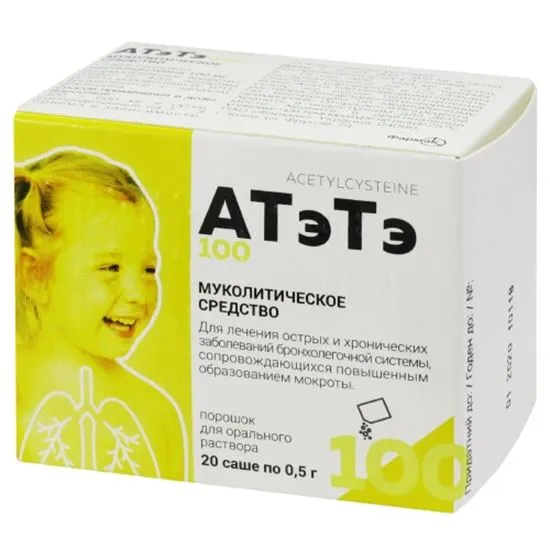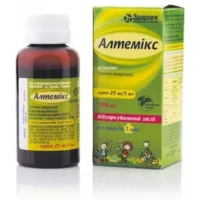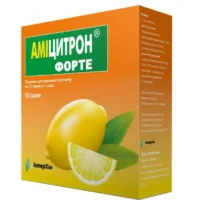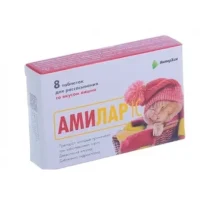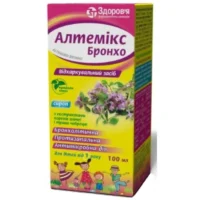Description
Atete 100 (Acetylcysteine) Powder for Oral Solution 100 mg/0.5 g, Sachet №20
Ingredients:
Each sachet contains 100 mg of acetylcysteine.
Mechanism of Action:
Acetylcysteine acts as a mucolytic agent by breaking disulfide bonds in mucus glycoproteins, reducing mucus viscosity and facilitating expectoration.
Pharmacological Properties:
Acetylcysteine is a derivative of the amino acid L-cysteine and exerts antioxidant effects by replenishing intracellular glutathione levels. It also exhibits anti-inflammatory properties.
Indications for Use:
Atete 100 is indicated for the management of respiratory conditions such as bronchitis, pneumonia, and cystic fibrosis. It is particularly beneficial in patients with excessive mucus production.
Contraindications:
Do not use Atete 100 if you have a known hypersensitivity to acetylcysteine or any other components of the product. Use with caution in patients with a history of peptic ulcers.
Side Effects:
Common side effects of Atete 100 may include gastrointestinal disturbances such as nausea, vomiting, and diarrhea. In rare cases, hypersensitivity reactions like rash or bronchospasm may occur. Discontinue use if severe adverse effects manifest and seek medical advice promptly.
Usage Instructions:
The recommended dosage of Atete 100 is one sachet (100 mg) dissolved in water, to be taken orally once daily. Do not exceed the prescribed dose to avoid potential adverse reactions.
Benefits Compared to Analogues:
Compared to other mucolytic agents, Atete 100 offers the advantage of a well-established safety profile and proven efficacy in reducing mucus viscosity. Its antioxidant properties further contribute to the overall respiratory health of patients.
Suitable Patient Groups:
Atete 100 is suitable for use in both adult and pediatric populations. Special caution should be exercised when administering the product to elderly individuals or patients with compromised renal function.
Storage Conditions and Shelf Life:
- Storage: Keep Atete 100 in a cool, dry place away from direct sunlight to maintain its stability and efficacy.
- Shelf Life: The product should be used before the expiration date printed on the packaging for optimal therapeutic benefits.
Packaging Description:
Atete 100 is available in sachet form, with each sachet containing 100 mg of acetylcysteine powder for oral solution. The packaging includes 20 individual sachets for convenient dosing and storage.
Clinical Evidence and Proven Effectiveness:
Acetylcysteine, the active component of Atete 100, has been extensively studied for its efficacy in managing respiratory conditions. Clinical studies have demonstrated that acetylcysteine therapy can improve lung function and reduce exacerbations in patients with chronic respiratory diseases.
Notably, a study published in the International Journal of Chronic Obstructive Pulmonary Disease revealed that acetylcysteine treatment was associated with a significant reduction in acute exacerbations in individuals with COPD, highlighting its potential as a valuable therapeutic option in respiratory care.

